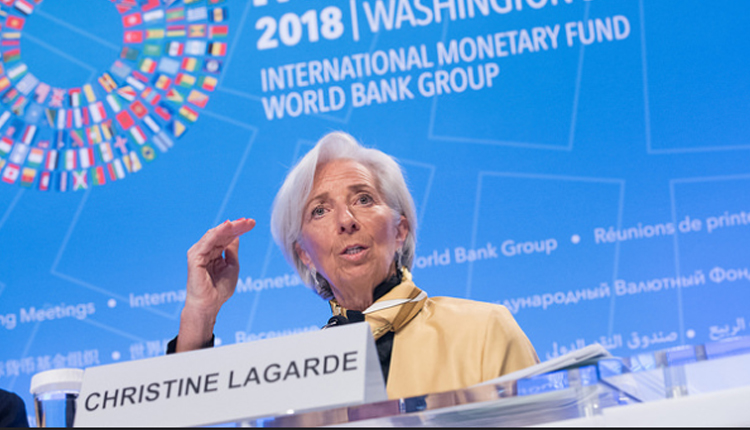Global economy to continue growth in the next two years: IMF’s Lagarde
Managing Director of the International Monetary Fund, said Lagarde referred to an IMF forecast, originally issued last January, that the global economy would growth 3.9 percent this year and at the same pace in 2019, which she said was a good backdrop for needed reforms.
Speaking at a panel session with Richard Quest on global business and social trends at the World Government Summit took place in Dubai, Lagarde made her first public comments on market movements since the latest round of turmoil at the end of last week.
sharp swings in global financial markets in the past few days “are not worrying” since economic growth is strong, yet reforms are still needed to avert future crises.
“I am reasonably optimistic because of the landscape we have at the moment. But we cannot sit back and wait for growth to continue as normal,” “Part of my job is to warn not just fix the roof … I‘m ringing not the alarm signal, but the strong encouragement and warning signal.” She did not give details of the reforms she wanted to see beyond saying authorities needed to move to regulation of activities, not entities.
“We need to shift the focus of regulations from entities to activities.” “Preventing the crisis before it comes is better … We need to anticipate where the next crisis will be. Will it be shadow banking? Will it be cryptocurrencies?” she said.
The IMF official also referred to several latest technologies such as AI, DLT, and IoT, whereby they should be support humans and keep in mind their benefits on humans.
She said the future economy would not be derived by robotics or AI. It would be derived by real humans spending on housing, education, traveling, food, and etc. Robots and AI should be there to supplement the jobs of these humans, not to make them jobless, she explained
“40% of people in this region do not believe society will offer them jobs. Therefore, we need to think about how the artificial intelligence can and will support the masses.” She further said fintech can help provide a pathway to create new jobs for the next generation. “But we cannot overlook the risks. From privacy concerns to illicit financial flows, we need regulatory technology to match our financial technology.”


